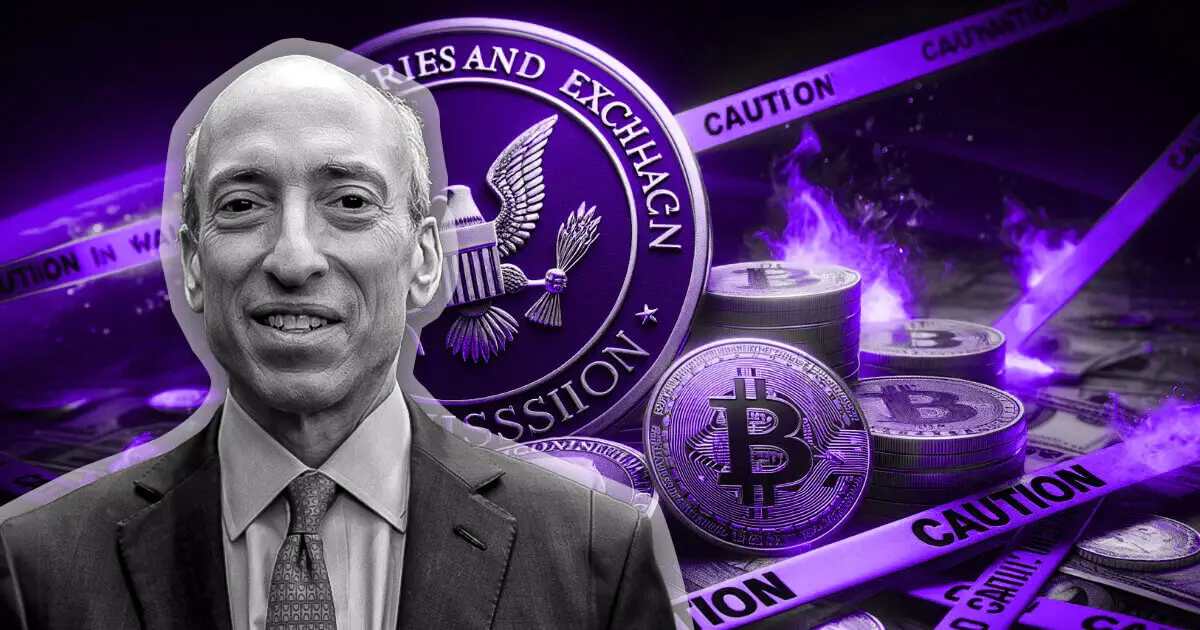In a recent interview, SEC Chair Gary Gensler emphasized an important distinction for the cryptocurrency world: Bitcoin is not a security. This straightforward assertion comes in the wake of heightened scrutiny and uncertainty that envelops the broader cryptocurrency market. Gensler’s statements, delivered on CNBC’s Squawk Box, reinforce the current legal classification of Bitcoin as a commodity rather than a security, a designation that positions Bitcoin distinctly within the regulatory framework of U.S. law. This clarity supports recent developments, including the SEC’s approval of various spot Bitcoin exchange-traded funds (ETFs), which allow investors to trade Bitcoin on established U.S. exchanges like the Nasdaq.
Despite the clarity around Bitcoin, Gensler did not shy away from criticizing the overall conduct of the cryptocurrency industry. He pointed out a troubling trend where many market participants either overlook existing regulations or actively seek exemptions, thereby contributing to a chaotic and unstable market environment. Gensler’s comments suggest that while there are rules present to govern the cryptocurrency space, non-compliance remains pervasive, leading to confusion for investors and regulators alike.
The contrast between Bitcoin’s status and the regulatory ambiguity surrounding Ethereum adds complexity to the conversation. Unlike Bitcoin, Ethereum remains in a gray area, with the SEC yet to classify it definitively as either a security or not. This lack of a firm legal status affects many projects operating on Ethereum’s blockchain, which now face ongoing scrutiny from regulatory bodies. Although Ethereum-based ETFs have been approved, the SEC’s simultaneous investigations into key players in the Ethereum ecosystem demonstrate a hesitant approach towards regulation, leaving market participants in limbo.
The ambiguity surrounding Ethereum has not gone unnoticed by U.S. lawmakers. Some members of Congress have expressed their concerns that Gensler’s approach to regulation has only fostered confusion rather than clarity. Critics argue that the SEC has inadvertently limited innovation within the cryptocurrency sector by failing to provide a coherent regulatory framework. Voices from within the SEC, notably Commissioner Hester Peirce, have echoed this sentiment, calling for more straightforward regulations that could facilitate growth instead of stifling it.
During a recent congressional hearing, lawmakers voiced their frustrations, pointing out that Gensler’s terminology, particularly phrases like “crypto asset security,” has muddied the waters further. This kind of ambiguity makes it challenging for entrepreneurs and investors to navigate the regulatory landscape and hampers potential advancements in the industry.
Despite the ongoing criticism, Gensler argues that establishing a stronger regulatory framework is essential for the future viability of the cryptocurrency industry. He believes that instilling investor trust is pivotal for market longevity. Drawing an analogy to traditional industries where regulations serve as “traffic lights and stop signs,” Gensler underlines the necessity of rules in facilitating progress. His conviction suggests that while Bitcoin enjoys clarity in its regulatory status, the future of the broader cryptocurrency market remains at risk until unresolved issues—particularly surrounding Ethereum and other digital assets—are satisfactorily addressed.
The regulatory landscape for cryptocurrencies is complex and fraught with challenges. While Bitcoin enjoys a clear status, the ambiguity surrounding Ethereum and the uneven enforcement of regulations call into question the potential for innovation and stability within the sector. The path forward will hinge on the SEC’s ability to create a regulatory environment that balances the need for investor protection with the promotion of technological advancement.


Leave a Reply